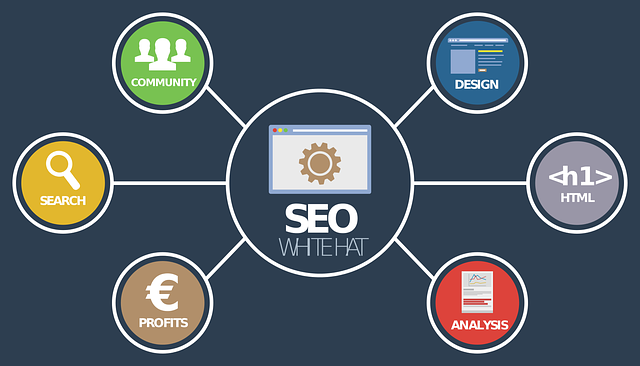AI is transforming the long-term rental market through advanced revenue forecasting models that leverage machine learning and vast datasets, including historical occupancy rates, market trends, seasonal fluctuations, and smart building energy use optimization. This technology enables property managers and investors to make data-driven decisions, optimize pricing strategies, and maximize returns. Smart buildings integrate AI with IoT devices to monitor and adjust energy consumption based on real-time occupancy data, enhancing tenant comfort and saving costs. AI smart building energy use optimization, coupled with dynamic pricing strategies and predictive analytics, ensures optimal revenue generation while promoting environmental sustainability.
“The evolving landscape of long-term rental markets demands innovative revenue forecasting models, and Artificial Intelligence (AI) emerges as a game-changer. This article explores how AI is revolutionizing the analysis of these markets, with a focus on energy-efficient smart buildings. We delve into integrating smart building data to predict energy use, enabling precise revenue optimization strategies. By leveraging advanced forecasting techniques, property managers can enhance their long-term rental income, ensuring a sustainable and profitable future in today’s digital era.”
- Understanding AI's Role in Long-Term Rental Market Analysis
- Integrating Smart Building Data for Precise Energy Use Prediction
- Advanced Forecasting Techniques and Revenue Optimization Strategies
Understanding AI's Role in Long-Term Rental Market Analysis

AI is transforming the long-term rental market by offering advanced revenue forecasting models that were previously unimaginable. By leveraging machine learning algorithms and vast datasets, AI can analyze historical occupancy rates, market trends, seasonal fluctuations, and smart building energy use optimization to predict future demand with remarkable accuracy. This technology enables property managers and investors to make data-driven decisions, optimize pricing strategies, and maximize returns on their long-term rental properties.
In the context of smart buildings, AI integrates seamlessly with Internet of Things (IoT) devices to monitor and adjust energy consumption patterns based on real-time occupancy data. This not only enhances tenant comfort but also contributes to energy cost savings, making long-term rentals more attractive and sustainable investments. By combining advanced analytics with efficient resource management, AI drives the evolution of the rental market, fostering a balance between profitability and environmental responsibility.
Integrating Smart Building Data for Precise Energy Use Prediction

In the realm of AI-driven long-term rental revenue forecasting, integrating smart building data offers a game-changer for precise energy use prediction. By leveraging IoT sensors and AI algorithms, landlords and property managers can gain unprecedented insights into real-time energy consumption patterns across various units. This enables them to optimize energy use not just for cost savings but also for environmental sustainability. Smart buildings equipped with AI can identify inefficiencies, predict maintenance needs, and even anticipate occupancy trends based on historical data, thereby enhancing overall revenue forecasting accuracy.
AI smart building energy use optimization goes beyond basic consumption tracking. It involves dynamic pricing strategies that adjust rental rates according to energy demand, encouraging efficient usage during off-peak hours. Additionally, predictive analytics can identify potential issues before they become costly repairs, minimizing downtime and maintenance costs. This holistic approach not only ensures optimal revenue generation but also fosters a responsible and eco-conscious living environment for tenants.
Advanced Forecasting Techniques and Revenue Optimization Strategies

Advanced forecasting techniques, powered by AI and machine learning algorithms, are transforming revenue prediction in the long-term rental market. These cutting-edge methods go beyond traditional analysis by incorporating vast datasets—from historical occupancy rates and seasonal trends to smart building energy use optimization and tenant behavior patterns. By leveraging these insights, property managers can anticipate demand fluctuations with remarkable accuracy, allowing for dynamic pricing strategies that maximize returns.
AI-driven revenue optimization strategies extend beyond predictions. They enable data-informed decisions on resource allocation, maintenance scheduling, and even personalized marketing campaigns. For instance, AI smart building systems can optimize energy consumption based on real-time occupancy, reducing operational costs while enhancing tenant satisfaction. This holistic approach ensures that every aspect of the rental experience is fine-tuned to drive profitability and stay ahead of the competition.
AI is transforming the long-term rental market through advanced revenue forecasting models. By integrating smart building data, these models can predict energy use with remarkable precision, enabling landlords and property managers to optimize their revenue streams. Advanced forecasting techniques, coupled with AI’s ability to analyze vast datasets, ensure strategic decision-making, cost reduction, and enhanced overall performance in the dynamic rental sector. Adopting AI smart building solutions promises a future of efficient energy management and maximized returns for long-term rentals.
